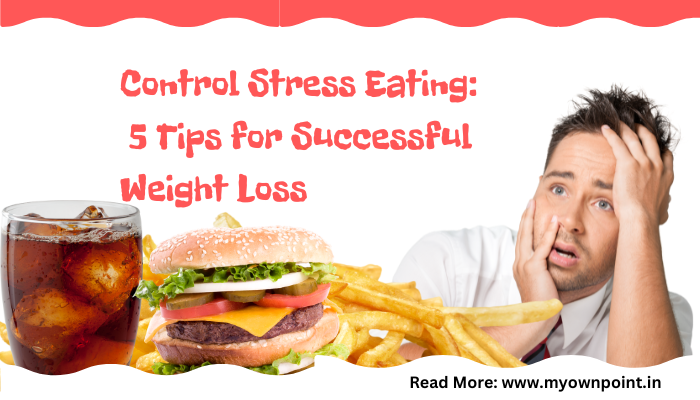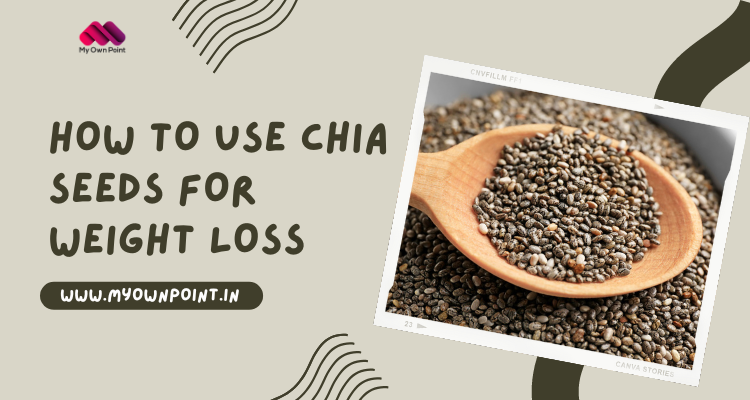Stress and poor eating habits are common problems for people trying to lose weight. It happens when people eat unhealthy foods because of stress, feelings, or boredom instead of real hunger. Controlling stress eating is essential for losing weight and staying healthy. Here are 5 tips for successful weight loss by stress eating:
Also Read: Healthy Low Calorie Snacks for Weight Loss to Your Daily Routine
Transform Your Journey: 5 Tips for Successful Weight Loss
1. Identify Triggers and Emotional Cues
To control stress eating, start by recognizing what triggers it and the feelings behind it. Knowing why you eat when you’re not hungry can help you find better ways to cope. Here’s how to spot and handle these triggers:
- Keep a Food and Mood Diary: Keep track of what you eat, when, and how you feel during meals. It can help you find patterns and recognize triggers like stress, boredom, sadness, or happiness.
- Reflect on Your Emotions: Think about why you want to eat. Are you starving or eating because of stress or other emotions? Recognizing your feelings can help you deal with the real problem instead of hiding it with food.
2. Develop Healthy Coping Strategies
After you find your triggers, it’s important to discover other ways to handle stress and emotions without using food. Here are some healthy coping strategies:
- Physical Activity: Exercise helps reduce stress. Activities like walking, running, yoga, and dancing can lift your mood by releasing endorphins, which are the body’s natural feel-good hormones.
- Relaxation Techniques: Deep breathing, meditation, relaxing muscles, and calming music can lower stress and stop emotional eating.
- Engage in Hobbies: Take your mind off stress and emotions by doing hobbies or activities like reading, painting, gardening, or playing music.
3. Practice Mindful Eating
Mindful eating means focusing on your food and enjoying it without distractions. This practice helps you notice when you’re hungry or full, which can prevent overeating. Here’s how to practice mindful eating:
- Eat Slowly and Savor Each Bite: Chew your food well and enjoy the flavors and textures that help you feel satisfied and know when you’re full.
- Eliminate Distractions: Don’t eat in front of the TV, computer, or while using your phone. Pay attention to your meal to better understand what and how much you’re eating.
- Listen to Your Body: Listen to your body’s hunger and fullness signals. Eat when you’re starving and stop when you feel comfortably full. Don’t eat because of emotions.
Also Read: From Better Digestion to Glowing Skin: Vegan Foods Unleashed
4. Plan and Prepare Balanced Meals
Planning and making balanced meals can help you reach your weight loss goals and avoid unhealthy foods when stressed. Here are some tips for meal planning and preparation:
- Create a Weekly Meal Plan: Plan your meals and snacks for the week. Include lean proteins, whole grains, healthy fats, and many fruits and vegetables. It will help you choose healthier options and prevent impulse eating.
- Keep Healthy Snacks on Hand: Fill your pantry and fridge with healthy snacks like fresh fruits, vegetables, nuts, yogurt, and whole-grain crackers. These options can help you choose better when you want to snack.
- Prepare Meals in Advance: Batch cooking and preparing meals ahead of time can save you time and lower stress when you’re busy. Having healthy meals ready helps you avoid fast food and unhealthy snacks.
5. Seek Support and Accountability
A support system can greatly help with stress eating and reaching your weight loss goals. Here are some ways to find support and stay accountable:
- Talk to Friends and Family: Tell your goals and challenges to trusted friends and family. They can offer support and encouragement and help keep you accountable.
- Join a Support Group: Join a support group, either in-person or online, to connect with others facing similar challenges. Sharing experiences and tips can motivate and help you.
- Consult a Professional: If stress eating is a big problem, consider getting help from a therapist, counselor, or registered dietitian. They can offer tailored strategies and support to tackle the root issues and build healthier habits.
Conclusion
So, stress makes you lose weight even when eating. You can control it by recognizing what triggers your cravings, finding healthy ways to cope, eating mindfully, planning balanced meals, and getting support. Be patient and kind to yourself as you pursue your goals. Small, lasting changes can lead to long-term success and better health.
Also Read: Fruit Salad Nutrition Facts: Things I Wish I’d Known Earlier




